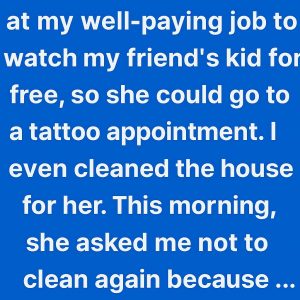**Drooling at Night? Here’s What It Could Reveal About Your Health**
Waking up to a damp pillow isn’t exactly the most glamorous way to start the morning — but if you’ve been drooling at night, you’re definitely not alone. While occasional drooling is harmless and surprisingly common, **frequent nighttime drooling can sometimes point to underlying health issues your body is quietly trying to alert you to**.
Here’s what experts say your nighttime drool may be revealing.
—
## **1. Your Sleep Position Matters More Than You Think**
Sleeping on your side or stomach naturally makes drooling more likely. Gravity causes saliva to pool and escape the mouth instead of being swallowed.
✔️ **Harmless
✔️ Easily fixable** — try sleeping on your back or using a supportive pillow to keep your head elevated.
—
## **2. You May Have Allergies or a Sinus Blockage**
If your nose is stuffy, your body forces you to breathe through your mouth. This dries the mouth out and leads to excess saliva production as a reflex.
Common culprits:
* Seasonal allergies
* Sinus infections
* Deviated septum
* Nasal polyps
If you’re constantly congested, drooling might just be a symptom of an underlying breathing issue.
—
## **3. Acid Reflux Might Be Triggering Saliva Overproduction**
GERD and silent reflux can cause your body to produce extra saliva — a condition known as **water brash**.
Signs it may be reflux:
* Sour taste in mouth
* Heartburn
* Hoarseness
* Chronic cough
If drooling is accompanied by these symptoms, talk to a doctor.
—
## **4. You’re in Deep, Restorative Sleep**
Believe it or not, **drooling can be a sign of excellent sleep**.
During deep REM sleep, muscles in the face relax fully. For some people, this makes saliva escape more easily.
✔️ **Completely normal
✔️ Often a sign of high-quality sleep**
—
## **5. You May Have Dysphagia (Swallowing Issues)**
If swallowing becomes difficult, saliva naturally pools and leaks out during sleep.
This can occur due to:
* Neurological conditions
* Acid reflux irritation
* Past throat injuries
* Enlarged tonsils
If you’ve noticed swallowing issues while awake, seek medical evaluation.
—
## **6. Medications Could Be the Cause**
Some medications cause hypersalivation, including:
* Antipsychotics
* Alzheimer’s medications
* Seizure medications
* Certain antidepressants
If nighttime drooling began after starting a new medication, ask your doctor about alternatives.
—
## **7. Sleep Apnea Might Be Playing a Role**
Drooling + loud snoring + waking up tired could be signs of **obstructive sleep apnea**.
Other symptoms:
* Morning headaches
* Gasping for air at night
* Difficulty concentrating
Sleep apnea is treatable — and fixing it often stops the drooling too.
—
## **8. It Could Be a Sign of TMJ or Mouth-Structure Issues**
Jaw misalignment or TMJ dysfunction can make it hard to keep your mouth closed during sleep, causing drool to escape.
Dentists can help correct this with simple devices.
—
## **When Should You See a Doctor?**
Consult a medical professional if drooling is:
* New and unexplained
* Accompanied by swallowing problems
* Paired with snoring or nighttime gasping
* Causing skin irritation around the mouth
* Interfering with sleep
—
## **Final Thoughts**
Nighttime drooling is usually harmless — and sometimes even a sign of incredibly deep sleep — but frequent or excessive drooling can also reveal hidden issues with your sinuses, digestion, jaw alignment, or sleep patterns.
If it’s happening regularly, don’t ignore it.
Your body may be trying to send you a message.





